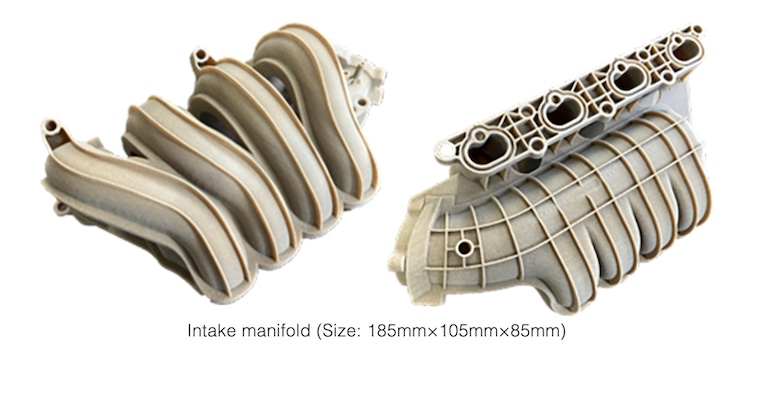3D-Printing-Grade PA 6 Smooths Post-Processing Requirements
Truly spherical polyamide (PA) 6 particles reduce need for polishing and other post-processing stages in parts printed via powder bed fusion.
September 5, 2022

Toray Industries has kicked off sales of Toraypearl PA6, a truly spherical polyamide (PA) 6 particle for powder bed fusion 3D printers that offers high strength, heat resistance, and surface smoothness. A commercial production facility for Toraypearl should be fully operational by March 2026, further expanding capacity.
Powder bed fusion 3D printers use metallic or resin particles and deliver 3D-printed parts with excellent dimensional accuracy and efficiency. Metals are for applications requiring exceptional strength. Polymers are commonly used for industrial applications because of lightness and affordability. However, polymer particles based on PA 12, the main PA type used for 3D printing, are irregular in shape. Printed surfaces, thus, require polishing and other post-processing to make them suitable for prototyping or end-use parts, thereby increasing cost and lead time.
This situation prompted Toray to apply its proprietary particle technology to PA 6, which has a high melting point and good mechanical properties. This effort led to the creation of Toraypearl PA6, the first product in the world with true spherical PA 6 particles. The offering caters to customer demand for printed parts with smoother surfaces, greater strength, and heat resistance under tougher conditions.
The performance characteristics of Toraypearl PA6 enable 3D printing of complex and precise shapes with smooth surfaces, to boot. This can reduce the need for polishing and other post-processing stages. Furthermore, spherical particles ensure the fluidity needed for 3D printing, even when blended with reinforcing glass fibers for modeling, combining rigidity with the aforementioned attributes.
Toray will leverage these features in initially proposing prototypes for automotive parts, power tools, and other equipment requiring high strength, heat resistance, and precision. The company ultimately aims to expand into 3D printing of finished parts.
Tokyo-based 3D printer company Aspect Inc. has already obtained conformity certification for Toraypearl PA6 for its AM-E3 300HT and 550HT additive manufacturing printers.
This new PA product will augment Toraymill PPS, a polyphenylene sulfide (PPS) resin launched in 2017 as part of Toray’s drive to expand its lineup of resin materials for 3D printers. Toray will also provide new value in the growing 3D-printer field by applying its proprietary particle and particle size control technologies to Toray-developed PAs.
About the Author(s)
You May Also Like




